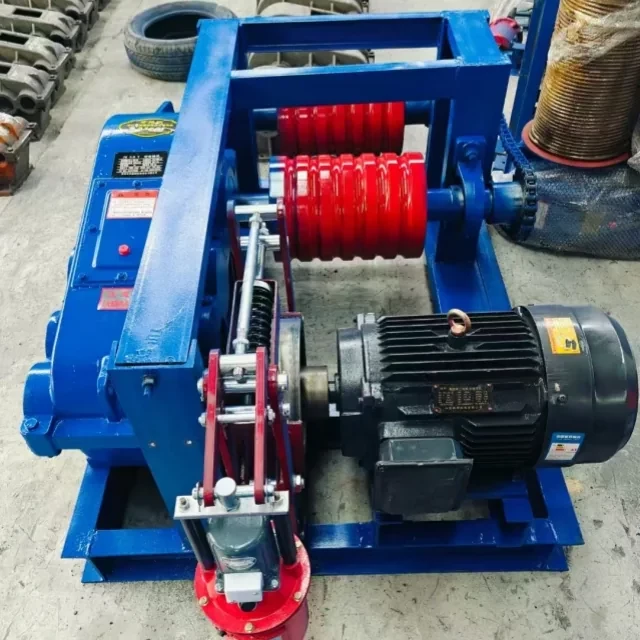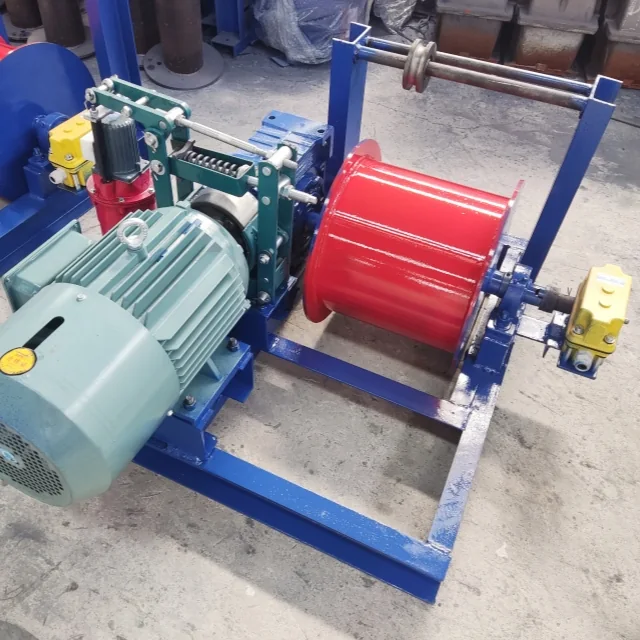Introduction
Deciding whether to hire or purchase a winch can significantly impact your project's budget, efficiency, and long-term operational flexibility. This guide breaks down the key factors—cost, project duration, maintenance responsibilities, and industry-specific needs—to help you make an informed choice. Whether you're in construction, marine operations, or emergency recovery, understanding these variables ensures you select the most cost-effective and practical solution.
Initiating Your Winch Transaction
Submitting an Online Enquiry
Before committing to a hire or purchase, gather detailed information through online enquiries. Reputable providers offer specifications, pricing, and safety certifications upfront.
Key steps:
- Compare multiple suppliers for competitive rates
- Verify equipment compliance with industry safety standards
- Request usage terms (e.g., minimum hire periods, delivery options)
Ever wondered how quickly you can secure a winch for urgent projects? Many providers streamline online bookings with same-day approvals.
Direct Communication Channels
For complex projects, direct calls or onsite consultations clarify nuances like:
- Custom attachments (e.g., slings, hooks)
- Operator training requirements
- Onsite support availability
Pro Tip: Discuss contingency plans—some companies include emergency repair services in hire agreements.
Key Factors in Choosing Hire vs. Purchase
Cost Implications and Budget Considerations
Hiring suits short-term needs, eliminating upfront costs (e.g., $200–$800/day). Ideal for:
- One-off projects
- Testing equipment before purchase
Purchasing (e.g., $5,000–$50,000+) makes financial sense if:
- Usage exceeds 60 days annually
- You avoid recurring rental fees
Did you know? Maintenance costs for owned winches average 10–15% of the purchase price yearly.
Project Duration and Frequency of Use
| Scenario | Recommended Option |
|---|---|
| <3 months | Hire |
| Seasonal projects | Hybrid (hire + own) |
| Daily operations | Purchase |
Maintenance and Storage Responsibilities
Owning requires:
- Scheduled servicing (e.g., lubrication, brake inspections)
- Secure, dry storage to prevent corrosion
Hiring transfers these burdens to the provider, often including:
- Pre-delivery inspections
- Post-return maintenance
Industry-Specific Winch Solutions
Construction and Heavy Machinery Case Study
A 6-month bridge construction project saved 32% by hiring heavy-duty winches instead of purchasing. Benefits included:
- No downtime for repairs (covered by the hire company)
- Ability to scale equipment as site needs changed
Marine and Offshore Applications
Saltwater exposure demands corrosion-resistant winches. Hiring allows access to specialized models without long-term ownership risks.
Emergency Recovery Scenarios
For unpredictable needs (e.g., disaster response), prioritize providers offering:
- 24/7 availability
- Rapid deployment
Conclusion: Making the Right Choice
- Short-term or infrequent use? Hire to minimize costs and logistics.
- High-frequency needs? Purchase for long-term savings.
- Specialized applications? Leverage industry-specific hire solutions.
For reliable options, explore Garlway’s winch and construction machinery, designed for durability across industries. Always verify safety certifications and match equipment to your project’s scale.
Final thought: Could hybrid models (e.g., leasing with buyout options) offer the best of both worlds for your operations?
Related Products
- Electric and Hydraulic Winch for Heavy Duty Applications
- Warn Winch Windlass Boat Trailer Winch
- Electric 120V Boat Winch by Badlands
- Best 18000 Pound Drum Anchor Trailer Winch
- 12000 lb Heavy Duty Electric Boat Winch
Related Articles
- How Electric Winches Deliver 5-Year Cost Savings in Industrial Operations
- How Electric Winches’ Engineering Enhances Efficiency and Safety in Heavy-Duty Applications
- How Ergonomic Engineering Transforms Electric Winch Usability for Modern Operators
- How to Choose and Optimize a Winch for Any Job: Power, Capacity, and Environment
- How Electric Winch Safety Features Prevent Catastrophic Industrial Accidents





















